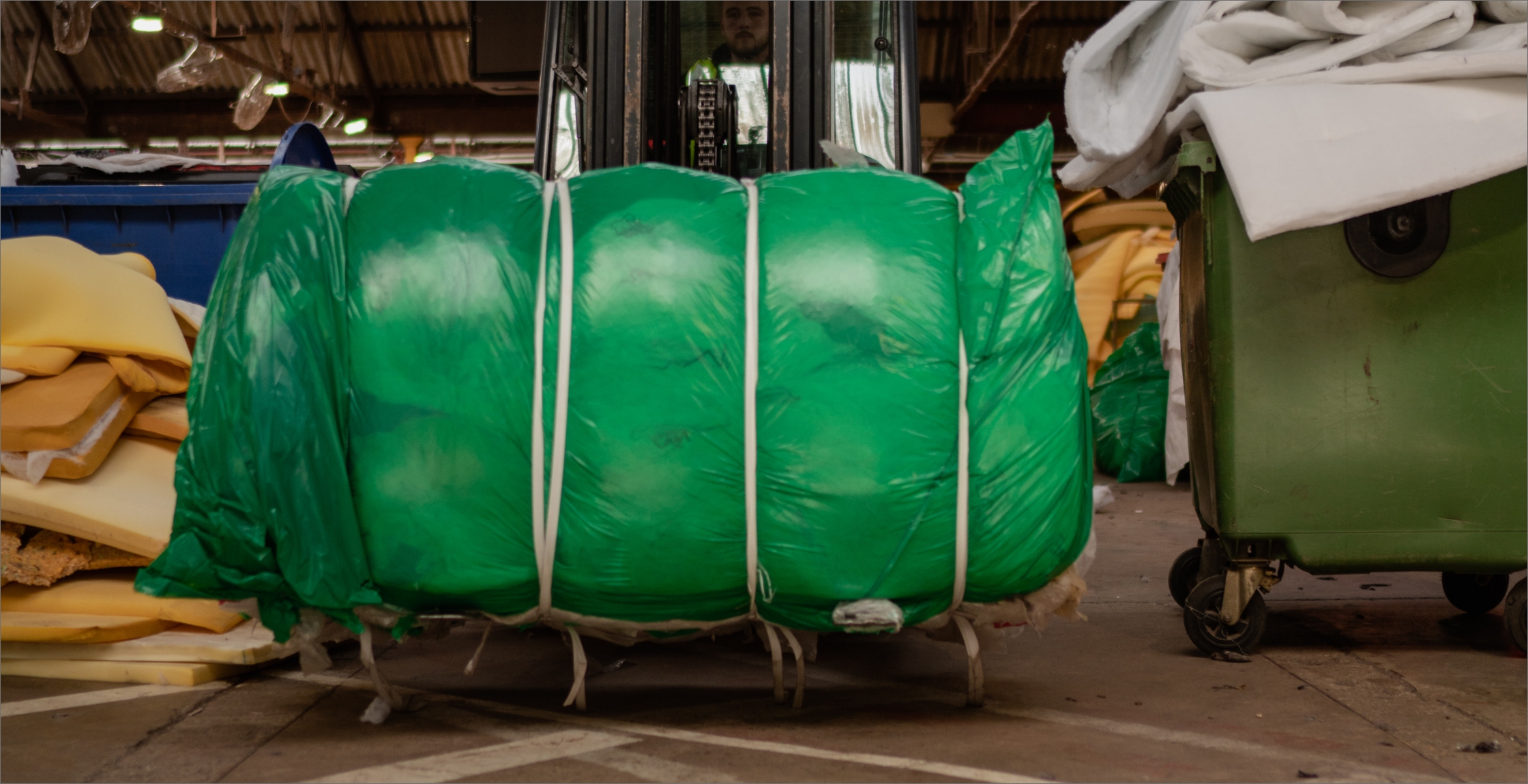Home Mattress Recycling
Need to recycle your old mattress?
Our sister company, The Mattress Recycling People, can take care of it!

With nearly three-quarters1 of consumers reporting that they are actively making more environmentally conscious purchase decisions than they did five years ago, businesses are looking for quick wins to align themselves with greener messaging. However, businesses that remain short-sighted in their efforts to become more sustainable for advertising purposes may fall into the trap of greenwashing.
Greenwashing is when a business makes claims that are misleading about its own eco-credentials to appeal to consumers. Businesses can mislead consumers in a variety of ways, such as inflating figures on efficiency by testing in controlled circumstances, or claiming a product is eco-friendly by using a very small percentage of recycled or organic materials while the majority of the manufacturing process uses unsustainable materials and practices.
Greenwashing blurs the lines of false advertising, which is why so many businesses are able to mislead consumers. However, it can have a long term effect on their reputation as consumers become more aware of greenwashing.
The best way for a business to avoid accusations of greenwashing and guarantee trust from consumers is to genuinely commit to implementing truly sustainable practices in its long term strategy.
To avoid the negative consequences of greenwashing, businesses must follow certain principles to maintain their reputation:
A key tactic of greenwashing is making unsubstantiated claims about eco-credentials. And the solution to standing out from companies who are greenwashing is simple; prove that what you’re saying is true.
Any business investing in sustainability can and will provide comprehensive evidence of its commitment. By making sustainability goals and reports publicly available through their own website, businesses can easily show the steps they are taking in implementing greener practices, and the measurable impact of the strategy.
If your business is looking to prove that your products are eco-friendly, review your entire supply chain. To claim that you produce truly sustainable products, you must take responsibility for every step of the process, from selecting raw materials all the way to the packaging and delivery methods.
A common trap many greenwashing businesses fall into is cherry-picking green initiatives as quick wins, for example producing packaging containing a percentage of recycled materials. However, this step in the right direction is overshadowed by the vast majority of the supply chain not using sustainable methods.
When reviewing the supply chain, opportunities will arise to reduce waste, produce recycled and recyclable materials and find more efficient transportation methods to reduce carbon emissions.
By aligning your business with ethical suppliers with practices as transparent as your own, you can prove to new and existing customers that your brand is fully committed to creating truly sustainable products.
Regular reporting is vital when it comes to implementing sustainable practices – how can you know your efforts are making a difference otherwise?
At TFR Group, for our recycling services we offer full traceability on what is delivered to us. For organisations who use our rejuvenation services, we also offer a data-led approach, in which each mattress is audit trailed in a bespoke system, so organisations receive an update at every stage of the process.
Measurement isn’t just about tracking progress – it’s about accountability and transparency. Without reporting on success and being open about figures, stakeholders, from the board to customers, will lose trust in the business’ commitment to sustainability.
Compliance is also a key indicator of sustainability commitments – independent third parties provide huge trust signals to customers, and having proven success is the only way to receive that.
Nick Oettinger and TFR Group is a co-founder of the newly launched Register of Approved Mattress Recyclers (RAMR) led by two leading UK trade associations; the Textile Recycling Association (TRA) and the National Bed Federation (NBF). TFR Group went through a rigorous audit process, requiring proven measurement of practices. Having the stamp of approval from these leading bodies will ensure organisations can trust TFR Group’s practices comply with all relevant regulations and standards and recycling responsibly.
Businesses with a genuine commitment to sustainability can easily separate themselves from the ones guilty of greenwashing. With savvy consumers knowing the difference, sustainability is only worth doing properly.
If you’re looking for a mattress recycling partner that works to the highest industry standards, get in touch today.
"*" indicates required fields
Need to recycle your old mattress?
Our sister company, The Mattress Recycling People, can take care of it!
X